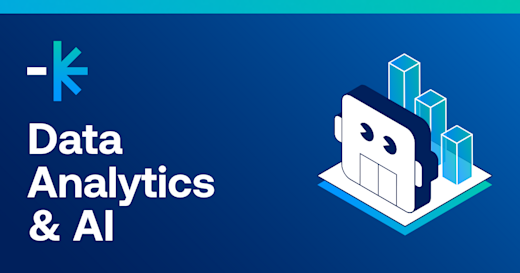For many enterprises, digital trustworthiness is an expectation. Building it improves customer relationships, enhances the company's reputation and increases brand loyalty.
According to a report by PWC:
73 per cent of people believe that trust supports customer loyalty
57 per cent say that trust leads to revenue growth
But what is it? And how do ISACA training courses support your team in building it?
What is digital trust?
Trust is at the core of every interaction. People often select businesses, relationships and transactions based on their perception of the parties' trustworthiness. The dictionary definition of the word is “assured reliance on the character, ability, strength, or truth of someone or something.
When face-to-face transactions were the norm, trust in a company was often based on its performance history and reputation, e.g., the perception of a local store or previous interactions with a person. Trust in today’s online world is much more complex. Shaking hands with a customer or service provider is nearly obsolete in a digital world where people can purchase products online and visit a doctor virtually.
Recent technologies shifted trust from the analog world to the digital world.
For example, you can open a bank account from a mobile device; you do not need to visit a physical location and meet a banker to open an account.
The bank may request specific documentation from account holders to ensure they are trustworthy and who they claim to be, while customers no longer need to physically meet the people who work at that bank to trust them.
Another example published on BioMed Central discusses the ability of healthcare organisations to protect sensitive personal data in medical records and registers might influence public trust. Consequently, this affects the willingness to allow healthcare groups to use the data.
For ISACA, digital trust is defined as the confidence in the integrity of the relationships, interactions and transactions among suppliers/providers and customers/consumers within an associated digital ecosystem. The term is used to describe how trust manifests in a digital context.
This includes the ability of people, organisations, processes and technology to create and maintain a trustworthy digital world. Information is also critical to trust but underlies people, organisations, processes and technology.
Why Does Digital Trust Matter?
Given the highly sensitive information that data can reveal and the consequences if this information is revealed, trust is foundational for an individual to be comfortable leveraging a service that requires sharing personal information.
Seed Scientific estimates that 2.5 quintillion bytes of data are
produced daily.
Data are not just random 1s and 0s; they represent the most personal details of a person, e.g., location, lifestyle, health and family information. Although anonymisation may give consumers a sense of security, it is still possible to identify a person from data sets stripped of information.
Therefore, it is almost impossible for people not to have comprehensive and accurate digital profiles, which highlights the importance of digital trust.
“Seventy per cent of people say trusting a brand is more important now than it was in the past, and trust is the second biggest factor when purchasing from a new brand," according to a poll by Edelman Communication.
Digital trust extends beyond information being improperly collected or disclosed. Insecure sites and downtime can also tarnish trust. Outages can prevent customers from receiving goods, services or information they need.
For example, if an online pharmacy is hacked and is experiencing extended downtime, people may be unable to order vital medication. The insecure website downtime can affect customers’ health, which makes them lose trust.
How to build digital trust?
Many consumers base their decisions on trust. ISACA says consumers consider six factors when determining digital trust:
Quality
Availability
Security and privacy
Ethics and integrity
Transparency and honesty
Resiliency
Having ISACA-certified professionals within your team can help you put these six factors into practice.
ISACA professionals are global IT audit, governance, security, risk and privacy experts. All ISACA-affiliated professionals are considered digital-trust practitioners because each ISACA core domain facilitates digital trust.
What is ISACA and what are its certifications?
ISACA is a global professional association of 170,000 digital trust professionals around the world.
Featured certifications that professionals can achieve upon training and examination include:
CISA Certification
ISACA’s Certified Information Systems Auditor (CISA®) is the gold standard for IS audit, control, and assurance, in demand and valued by leading global brands.
CISM Certification
ISACA’s Certified Information Security Manager (CISM®) certification shows you have expertise in information security governance, program development and management, and incident and risk management.
CRISC Certification
ISACA's Certified in Risk and Information Systems Control (CRISC®) credential is focused on enterprise IT risk management.
Build digital trust through certification
You can enhance your team's credibility while building digital trust through ISACA certifications.
Lumify Work Philippines (formerly DDLS Philippines) is a Premium ISACA training provider and offers the globally recognised cyber security certifications CISA, CISM, and CRISC, along with the IT management and governance framework, COBIT.
We offer CISA, CISM, CRISC, and COBIT courses from ISACA, with more to come as we expand our cybersecurity and governance portfolios.
Additionally, the Lumify Anywhere platform enables students to complete their training from the comfort of their homes, from one of our campuses – or wherever suits them best.
Access our eBook on cybersecurity here. Contact our team about ISACA training and certifications.








